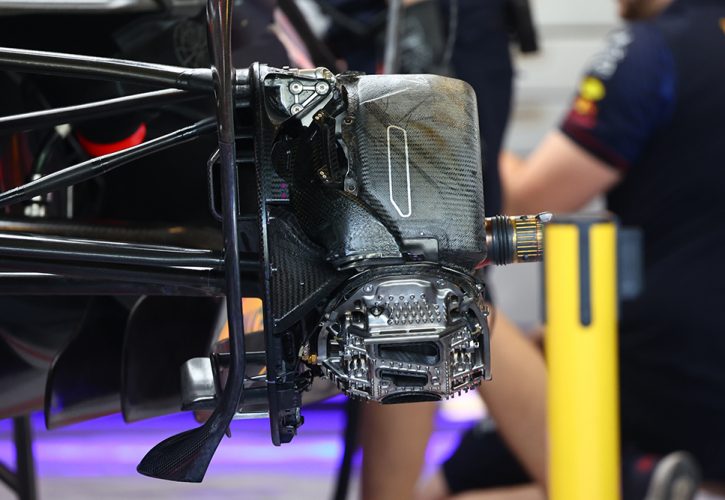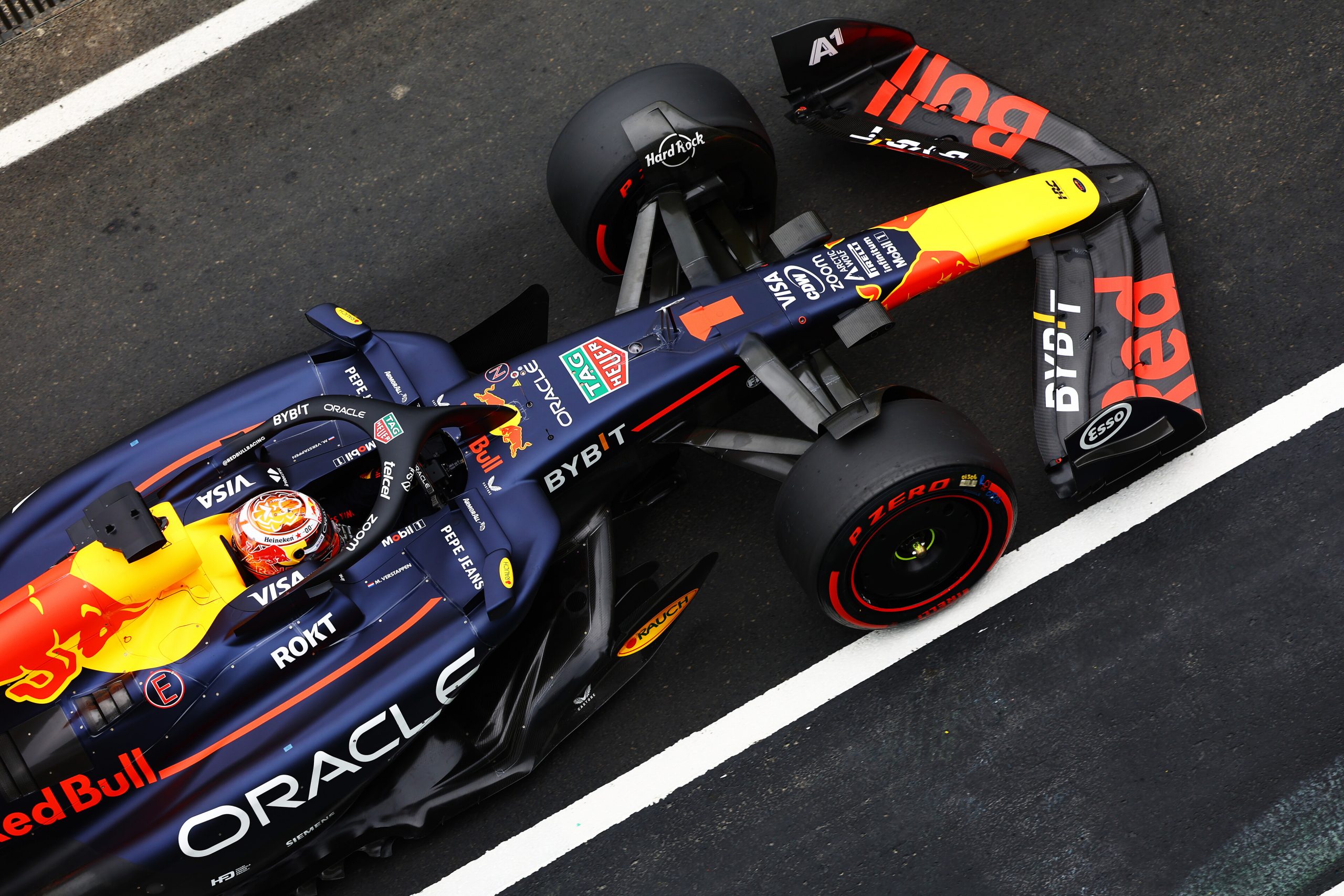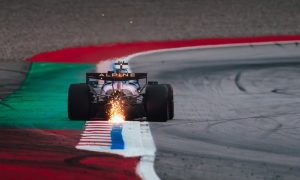
The FIA has addressed speculation surrounding a recent addition to Formula 1's technical regulations regarding the potential use of asymmetrical braking systems, a move that some believed was aimed directly at Red Bull Racing.
Previously, Article 11.1.2 of the regulations stated that the braking system "must be designed so that within each circuit, the forces applied to the brake pads are the same magnitude and act as opposing pairs on a given brake disc."
This rule was intended to ensure that braking forces were evenly distributed across the axles, preventing any team from gaining an unfair advantage through unconventional braking systems.
But following a recent FIA World Motor Sport Council meeting, additional text was ratified by all F1 teams and added to the clause: "Any system or mechanism which can produce systematically or intentionally, asymmetric braking torques for a given axle is forbidden."
The timing of this regulatory clarification has led to widespread speculation that it was aimed at Red Bull Racing, following rumors that the team may have employed an asymmetrical braking system on its RB20 car earlier in the season
While the system was reportedly within the confines of the regulations, it may have stretched the boundaries of the rules’ intended spirit, according to RacingNews365.

While the reasons for system's removal remain unclear, the FIA denies the recent rule clarification was a response to any current team actions.
"There is no truth that any team was using such a system," an FIA spokesperson told Motorsport.com.
The FIA’s stance is that the decision to enhance the wording in the regulations was driven by a collective effort from the F1 teams themselves. The intention was to prevent any competitor from exploiting ambiguities in the existing rules.
The general consensus within the sport is that if a team had indeed been found using a non-compliant braking system, the FIA would have typically issued a technical directive rather than rewriting the rules.
This latest development highlights the ongoing cat-and-mouse game between the governing body and the teams, as F1 continues to evolve and teams seek every possible advantage within the framework of the regulations.
The FIA’s proactive clarification serves as a reminder that while innovation is encouraged, it must align with the spirit and letter of the rules to ensure fair competition across the grid.
Keep up to date with all the F1 news via Facebook and Twitter






